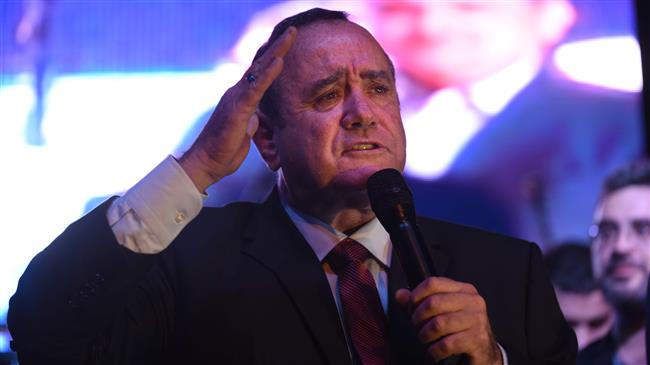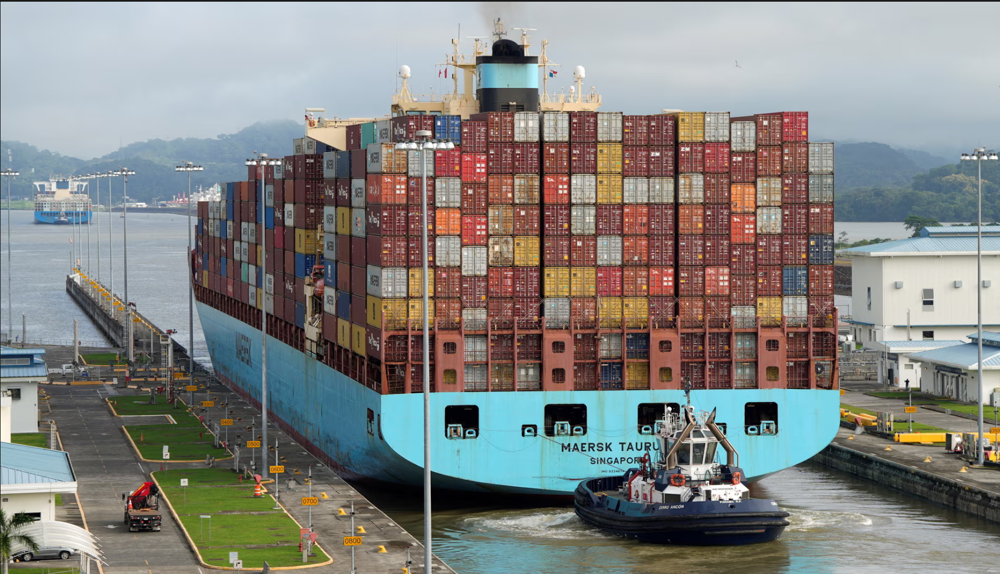Guatemala's election winner hopes to change recent migrant deal with US
The victor of Guatemala’s presidential election, Alejandro Giammattei, has emerged to be outspoken in his opposition to a recent migration deal that his predecessor inked with the United States, saying he hopes to make changes to the controversial agreement.
The Central American country’s president-elect, a 63-year-old former doctor and prisons chief, managed to secure 59 percent of the votes in Sunday’s election, beating former first lady Sandra Torres, who could just garner about 42 percent of the votes.
Giammattei, who uses crutches because he has multiple sclerosis, will replace outgoing President Jimmy Morales, who agreed last month to stem US-bound migration from Central America.
“I hope that during this transition the doors will open to get more information so we can see what, from a diplomatic point of view, we can do to remove from this deal the things that are not right for us, or how we can come to an agreement with the United States,” Giammattei said on Sunday.
Under a threat of US sanctions, Morales signed the immigration accord with US President Donald Trump’s administration late last month to make Guatemala a so-called safe third country for migrants, despite the fact that his nation suffers from endemic poverty and violence.
The deal is highly unpopular in Guatemala.
“It’s not right for the country,” Giammattei said of the deal, adding, “If we don’t have the capacity to look after our own people, imagine what it will be like for foreigners.”
Giammattei said since an American judge had already suspended another safe third country accord, there was a chance that the accord with his country could also change.
“We’ll have to see what happens in the United States with the federal judge’s decision. The most likely outcome is that the United States will have to modify ... the deal,” he added, also stressing that Guatemala’s Congress would need to be consulted about the issue.
Under the deal, migrants who come from El Salvador and Honduras and want to pass through Guatemala are required to stop in the Central American country and seek asylum there first. Those who fail to do so would then be ineligible for asylum in the US.
In exchange, Washington promised that Guatemalan farm workers will get easier access to work on US farms.
However, Giammattei doubted that migrants from El Salvador and Honduras wanted to seek asylum in his country.
“They are looking for asylum in the United States. I don’t think there are a lot of people from El Salvador and Honduras who want to seek asylum in Guatemala, especially if they are fleeing poverty,” he said.
Trump had threatened to impose tariffs on Guatemalan exports, and also to levy charges on billions of dollars in remittances sent home by Guatemalans living in the US unless the accord was signed.
About three million Guatemalans live and work in the US, which is also Guatemala’s main trading partner.
Despite the criticisms, however, the Trump administration has insisted on pushing ahead with its harsh anti-immigration policies, which includes keeping thousands of asylum seekers in custody while they pursue their cases.
In June, the American president came under fire from Democratic lawmakers and civil rights activists who paid visits to some detention centers along the southern border with Mexico, where migrants are locked up in overcrowded buildings and suffer from inadequate access to food, water and other basic commodities.
Iran seeks South Korea’s assistance for AI, fiber-optic projects
VIDEO | Iran's 'Eqtedar' (Power) maneuver
Israel hits HTS military target in Syria for 1st time since fall of Assad
VIDEO | Press TV's news headlines
Israel has slaughtered 13,000 students in Gaza, West Bank
VIDEO | More Zionist than Zionists: Biden’s legacy to be defined by Gaza genocide
Hamas confirms handing approval of Gaza ceasefire deal to mediators
VIDEO | Iran: Show of strength












 This makes it easy to access the Press TV website
This makes it easy to access the Press TV website